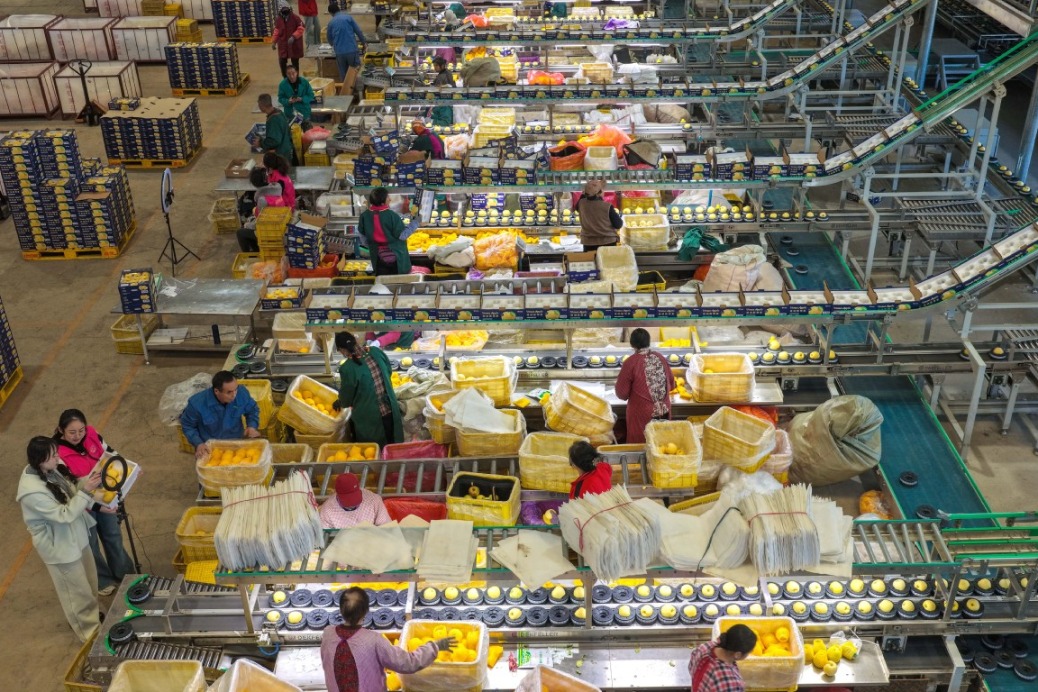Unified national market resilience reinforcer: China Daily editorial

A unified national market is the linchpin connecting many of China's current reform and development endeavors — from fiscal and tax reform to digital governance, from deepening supply-side structural reform to advancing the dual circulation development pattern. It embodies the central leadership's call to move faster to foster the new pattern of development and promote unimpeded domestic and international economic flows. In this sense, it is both an instrument for internal reform and an enabler of global cooperation.
Building a unified national market entails the unification of underlying market institutions, market infrastructure, government conduct, regulatory enforcement and markets of production factors and resources, as well as the continuous expansion of high-standard opening-up.
As the Recommendations of the Central Committee of the Communist Party of China for Formulating the 15th Five-Year Plan for National Economic and Social Development make clear, this is a farsighted strategic deployment to modernize the country's vast economy, strengthen its internal dynamism and enhance its capacity to withstand external shocks.
The move is necessary for China's pursuit of high-quality development and national rejuvenation amid a volatile global environment characterized by protectionism, fragmented supply chains, and growing geopolitical risks. An open, efficient, rules-based domestic market that operates under unified standards and regulations will ensure that goods, services, capital, data and talent can circulate freely nationwide.
From unifying technical standards in emerging sectors such as new energy vehicles and data security, to advancing market access reforms through shorter negative lists and unified regulation, the foundations of a truly national market are already taking shape. Nationwide logistics connectivity — supported by extensive high-speed rail, highway, and port networks — and the expansion of e-commerce have already transformed the way goods and services flow across China's vast territory.
The CPC Central Committee underscored that the market unification drive must be anchored in breaking down regional barriers and reducing market fragmentation. It is important to focus on the key and difficult tasks, such as dealing with the problem of disorderly price competition among some enterprises, and standardizing government procurement and tendering procedures. It is also imperative to regulate local governments' practices to attract investment, promote the integrated development of domestic and foreign trade, and address shortcomings in legal and regulatory frameworks.
By dismantling the invisible walls of local protectionism and standardizing regulatory enforcement, China is nurturing a market that rewards efficiency, innovation and quality — all essential pillars of high-quality development.
A unified domestic market will enable China to stimulate demand, spur household consumption and expand effective investment, all of which help enhance the dynamism and reliability of the domestic economy. At the same time, as China pursues breakthroughs in core technologies in key fields and advances the digital and intelligent transformation of the economy, a unified market provides the regulatory and infrastructural framework to commercialize innovation on a national scale.
A transparent regulatory environment will also make it easier for foreign businesses to operate in China. With consistent standards across provinces, multinational corporations will no longer face fragmented local rules but instead benefit from a stable, predictable business environment — one that is market-oriented, law-based and internationalized.
By improving the allocation of production factors and promoting fair competition, a unified market will also nurture domestic enterprises capable of standing shoulder to shoulder with world-class competitors. This process of creative transformation will inevitably produce challenges for weaker local players, but it will ultimately boost productivity and expand the overall pie of national wealth.
A unified national market will give full play to the advantages of China's enormous market, support innovation-driven development, strengthen national economic security, and contribute to a fairer, more efficient domestic economy that connects seamlessly with the global market.
In short, the building of a unified national market embodies the CPC Central Committee's strategic vision to make China's growth more resilient, its economy more dynamic and its development more inclusive. It represents the solid foundation on which China will continue to open wider to the world, share new opportunities for cooperation and advance its long-term goal of achieving Chinese modernization featuring high-quality, secure and sustainable development.


































